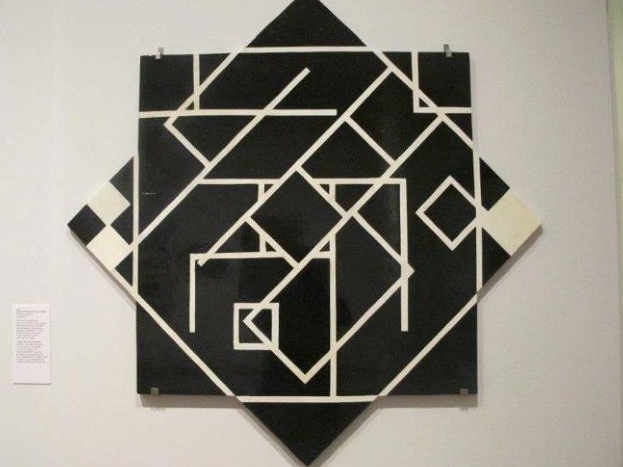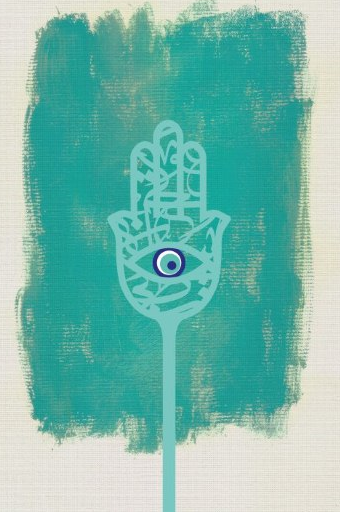

From top to bottom: Jeem (2011), The Hand of Fatimah.
|
Basmah Felemban (1993) is a graphic designer with the slightly loose touch that betrays the real artist. She landed her work Jeem in the British Museum at a sideshow to the 2012 Hajj exhibition and on her blog in December 2011 she was kind enough to allow the world a sneak preview of 'the making of Jeem' showing us how she wrestled with stencils to separate light and darkness on an octangular piece of wood, creating and image which looks like at least two works of art, intimately attached to each other for a fate of eternal friction. She mentioned online her interest in Islamic art and Jeem reflects exactly that, but even more so the work left us with the impression that the very best things might well happen outside the greater plan of known geometry. The people she most admires in the field of art? Leonardo da Vinci and Banksy. Felemban finished highschool in 2011 and describes herself now, for those who twitter, as an 'amateur artist.' An opinion with which we are inclined to strongly disagree, if not Da Vinci would have said exactly the same about himself. In her frequent writing on blogs she takes an interest in what other artists do and make. Her frank contribution 'Let the walls speak' for pan-arabic Mashallah News reported on the growth of street art in her country and made an interesting read. (2012) Sources: © All rights reserved. |
|
|